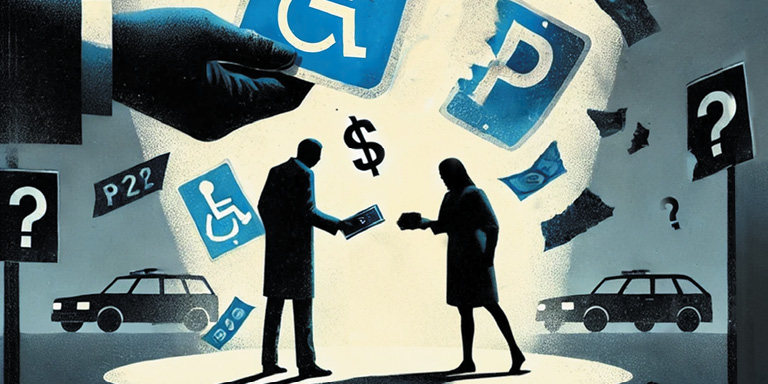No Free Parking
AAMVA’s recent best practices guide update aims to reduce fraud associated with disability parking placards and license plates
Millions of people in the United States rely on disability parking placards and plates, ensuring they can access services and facilities with ease. In California alone, for example, there are more than 2 million people who hold disability parking placards and/or license plates.
The widespread use of disability parking placards, however, is also the reason they need to be monitored and regulated to prevent misuse and abuse.
To help with that effort, last year AAMVA reviewed its 2018 “Persons with Disabilities Placards and License Plates: Best Practices in Deterring and Detecting Fraud and Misuse” guide and decided that it was time for an update.
KEEPING UP WITH CHANGES
Since the publication of the original document, several jurisdictions have made statutory changes. For example, California passed Senate Bill 611, which amended several regulations, including disability parking permits. Previously, the California Department of Motor Vehicles (DMV) compared its own records to the records of the California Department of Public Health’s vital statistics and withheld renewed placards if someone was deceased. But after SB611, the California DMV will compare its placard records against the Social Security Administration’s master files.
The reason for this deeper comparison? “Turns out lots of folks would have a family member with a disability pass away, but they’d keep renewing their placard for years,” says Thomas Foster, law enforcement program manager at AAMVA.
COMBATING FRAUD AND LOST REVENUE
The misuse and abuse of disability parking placards is a significant issue in the United States, with numerous cases being reported each year, Foster says. Common abuses include individuals without a disability using a placard issued to someone else, purchasing fake placards or forging medical documents to obtain a placard.
Such misuse not only limits accessibility for those who genuinely need these parking spaces, but it also leads to substantial financial losses for local governments due to unpaid parking fees and the costs associated with enforcement operations.
Because some states allow people with disability parking placards to park at paid/metered spaces for free, some people without disabilities abuse the privilege, resulting in lost local revenue.
“One study found that those people were staying approximately seven times longer than the people who were paying to use that parking spot,” Foster says. “So a system that was originally designed to generate $4 an hour per parking meter was generating, on average, 28 cents per hour.”
HOW JURISDICTIONS CAN HELP
A portion of the new best practices guide, released in April 2024, is dedicated to helping jurisdictions train employees on how to spot potential fraud during the issuance process. For instance, it recommends that employees treat subjective and objective complaints from customers differently.
“Does the customer state that they’re in pain, which is subjective, or do they have an actual diagnosis from a doctor, which is objective?” Foster asks. The former should give employees reason for further investigation before issuing a placard.
Though federally, Americans with disabilities are granted several protections under the Americans with Disabilities Act (ADA), jurisdictions have different rules and regulations governing parking specifics, including signage, fees and allotted space.
“Our hope is that the jurisdictions will review this best practices guide and look internally to see what statutes and internal processes should be revised or revisited to mitigate fraud or misuse of disability placards and plates,” Foster says.




